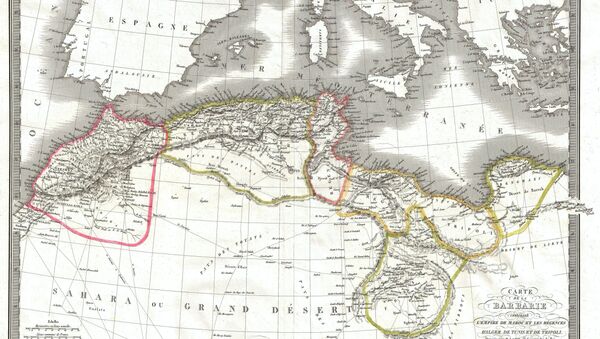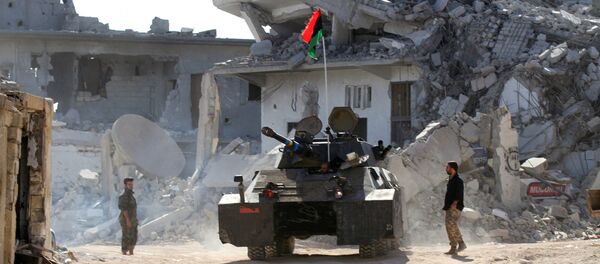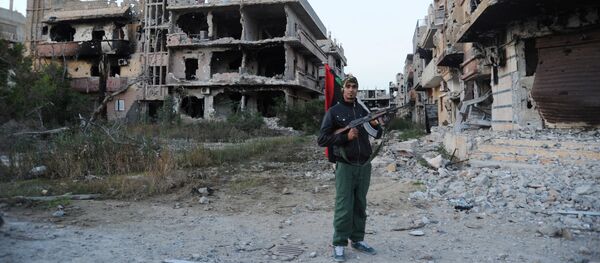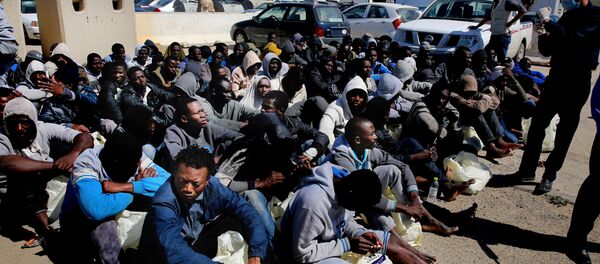Last week, the International Organization for Migration reported that nearly 32,000 refugees and migrants have crossed the Mediterranean Sea to reach European states since the beginning of this year, over 80% of them going to Italy. Over 550 people died trying to make the treacherous crossing.
Libya has been mired in chaos and civil war since 2011, when a NATO-led bombing campaign led to the overthrow and murder of Colonel Muammar Gaddafi. Since then, the country has become a haven for people smugglers and slave traders, becoming one of the main routes by which people from across Africa and the Middle East make an attempt to reach Europe, which has been mired by a migrant crisis since 2015.
Earlier this month, White House deputy assistant to President Donald Trump Sebastian Gorka was reported to have proposed to the president that Libya be partitioned into three new states: Cyrenaica in the east, Tripolitania in the northwest and Fezzan in the southwest. Prior to the Italian invasion of 1911, these were the administrative divisions of Libya in the Ottoman Empire, which collapsed in the 1920s.
In a searing op-ed on the implications of Gorka's proposal, and the desperate situation now facing Libya, journalist and Radio Sputnik contributor Ilya Kharlamov wrote that the results of Western powers' 'experiment' in Libya is quickly coming around to hit them like a boomerang. For Europe, he warned, the worst may still be yet to come.
"Torn apart by conflict, Libya is once again at the center of attention of Washington strategists, or more precisely, those of them who are considering a new division of the country into three parts, Tripolitania, Fezzan and Cyrenaica," Kharlamov wrote. "This, for example, is the view held by deputy assistant to the president Sebastian Gorka." Effectively, the journalist lamented, "it seems that the period of the reign of Colonel Gaddafi, under which Libya was turned into an economically and socially developed state, should be completely forgotten."
"Today, the country resembles a territory from the medieval era, where the slave trade, terrorism, and criminal gangs thrive. Then there are the refugees, endlessly flowing to Europe in search of a better life. Too often, they find death before ever reaching the continent. In the country, there are now three governments, plus retired army general Khalifa Haftar, who controls part of the territory in the east. And there are no agreements between these forces. On the contrary, contradictions between them are only gaining momentum."
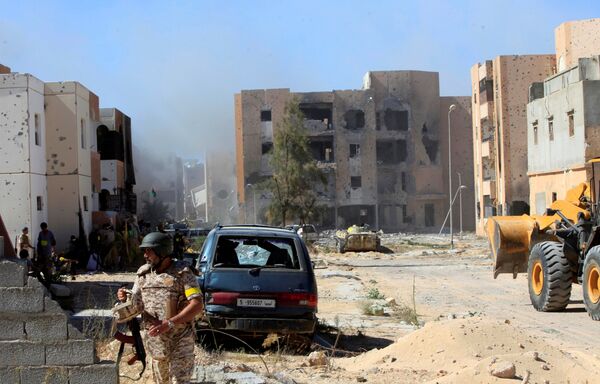
Unfortunately, Kharlamov noted, even amid such musings by great powers over whether or not to formally liquidate the Libyan state, "no one in Washington seems concerned over offering compensation, or any real, large-scale assistance to the country. The idea is to 'take and divide', to recall the words of the hero of a Bulgakov novel."
Unfortunately, Kharlamov noted that not everyone can just get up and walk away from the toxic Libyan quagmire, apology or no apology. "The US is very far from Libya. Europe is a lot closer – just a stone's throw across the Mediterranean. What happens on the ruins of Gaddafi's Jamahiriya should be of prime interest to the Europeans, especially since their fates are closely related."

"Today, a kind of historic boomerang is returning to Europe, in the form of illegal migrants, drug traffic and other 'delights' of Western-style democracy, imposed from the outside onto the Middle East and North Africa," Kharlamov wrote. "This boomerang is painfully hitting the heads and other parts of the European 'body.'"
"There is only one problem: political will; the Europeans have lost it, and it's now hiding under the sofa in the dustiest corner," the analyst concluded.
